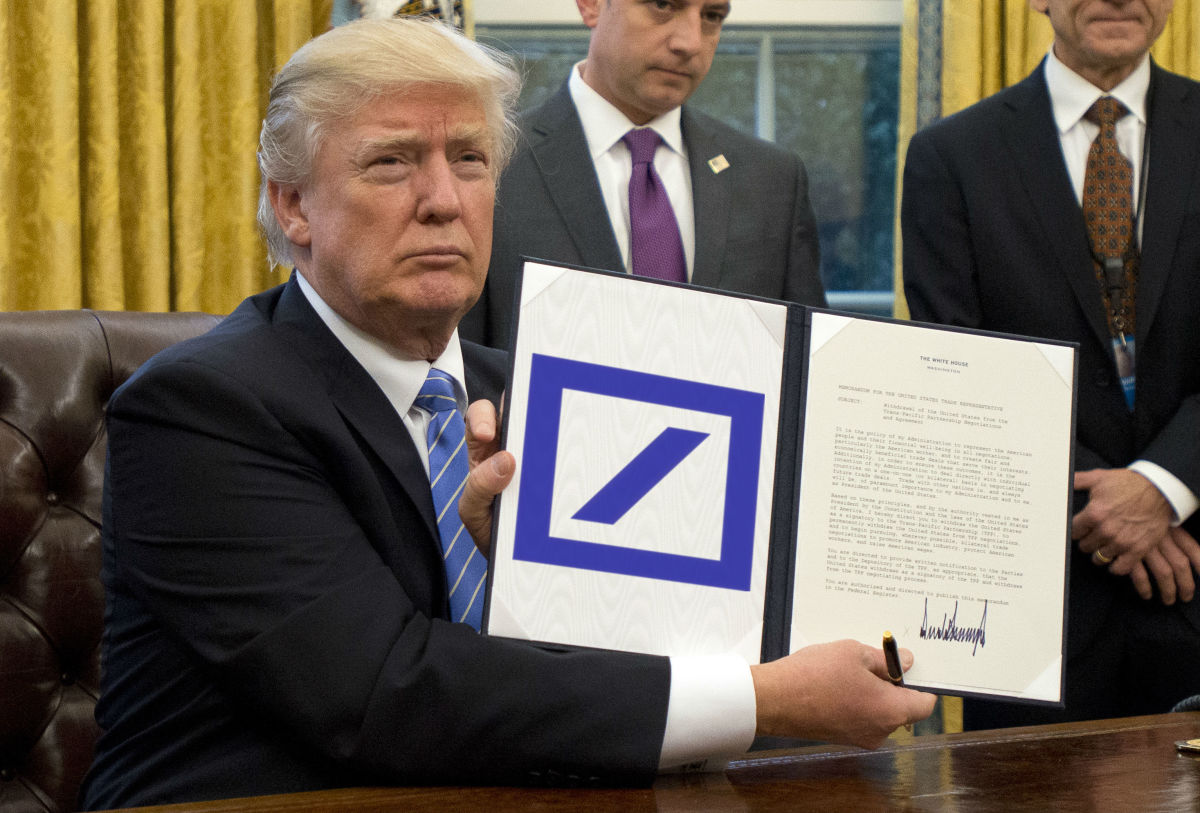
Back in 2017, the U.S. Federal Reserve adjudged Deutsche Bank to be in a “troubled condition.” This may sound like something pretty close to a compliment for a bank undergoing a decade-long existential crisis, but it’s not, because the Fed wasn’t making a general comment on how the Germans were doing, but how they were doing vis-à-vis not laundering money specifically, and “troubled condition” is not a term the central bank throws around lightly.
Since then, the Deutsches have gotten tied up in money-laundering scandals in Malaysia and Estonia, admitted to being a little less-than-attentive as regards the accounts of the president of the United States and his son-in-law, had an unannounced visit from the police, and paid yet another fine. So, uh, how are they doing?
The rebuke, pertaining to the bank’s U.S. operations, came in the form of a letter sent to the bank. According to German newspaper Süddeutsche Zeitung, which first reported on it, the U.S. regulator also slapped Deutsche Bank for failing to solve problems that led it to classify the bank’s U.S. operations as being in “troubled condition” in 2017…. In 2017, it said the bank’s U.S. operations had failed to maintain an effective anti-money-laundering program to comply with the Bank Secrecy Act and other laws. It laid out a series of actions the bank had to take and fined it $41 million. That action hasn’t been lifted.
Given everything else he has to do, it has to be said that Deutsche Bank’s leader is pretty philosophical about getting around the dealing with the money-laundering stuff.
In a prepared speech to be delivered at the bank’s annual meeting later this month and published on its website, Chief Executive Christian Sewing said that, while the bank has passed the Fed’s 2019 stress test for the first time, “are we there yet regarding our controls? The answer is no.”

